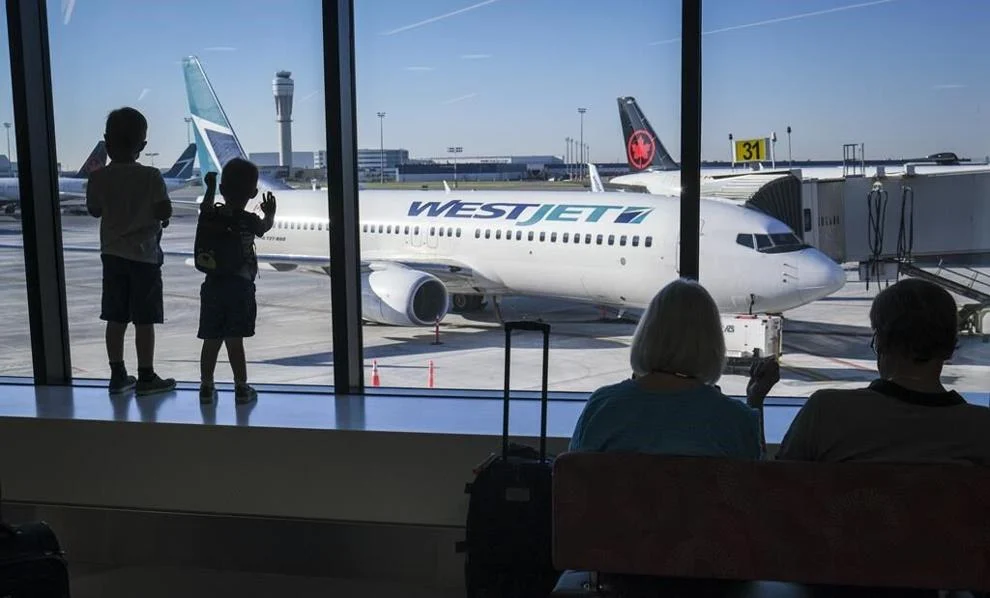
Young boys look out at Air Canada and WestJet planes at Calgary International Airport in Calgary on August 31, 2022. THE CANADIAN PRESS/Jeff McIntosh JMC
In Montreal, Canada's airline industry is witnessing a significant shift as it heads towards consolidation, potentially leading to higher airfares and fewer flight choices for travelers. Over recent years, there has been a notable influx of new airlines entering the market, but now the trend is reversing..
Since May, two relatively new low-cost carriers, Swoop and Lynx Air, have ceased operations, while WestJet has acquired Sunwing Airlines. This move has had a substantial impact on the market, particularly concerning direct flights to popular sun destinations and routes from Western Canada. According to a report from the Competition Bureau, these carriers collectively represented a significant portion of seat capacity in these sectors.
John Gradek, an aviation management program lecturer at McGill University, highlighted the scale of this consolidation, expressing concerns about its potential implications. He noted that losing 40% of market players within just 12 months is significant and raises questions about the future direction of the industry.
The dwindling number of airlines could lead to reduced services and higher ticket prices, especially in regions like the West and smaller markets across the country. Gradek emphasized that with fewer competitors, there's less pressure to keep prices competitive, ultimately impacting consumers.
Despite the consolidation, Air Canada and WestJet have continued to strengthen their positions in the domestic market. Statistics from aviation data firm Cirium indicate that these two major carriers now command a significant majority of domestic air traffic in Canada. This dominance has increased over the past year, despite efforts by other players like Porter Airlines to establish themselves as significant contenders in the market.
The decline in the number of airline operators has coincided with a decrease in domestic flight volume, though this may be partly attributed to a renewed focus on international travel. While major cities continue to be well-served, smaller destinations are experiencing fewer options, potentially leading to higher prices and inconvenience for travelers.
For example, routes like Edmonton-Winnipeg and Calgary-Saskatoon have seen significant declines in flight numbers since certain airlines ceased operations. This reduction in competition has also correlated with an increase in ticket prices on these routes, further highlighting the impact of consolidation on consumer costs.
Interestingly, the COVID-19 pandemic, which initially disrupted the travel industry, provided opportunities for new entrants. However, as the industry rebounds, ownership is consolidating, leading to the demise of some budget airlines. Factors such as high airport rents, security fees, and fuel taxes contribute to the challenges faced by budget carriers, making it harder for them to compete effectively.
Stephen Jones, CEO of Flair Airlines, highlighted the substantial fees and charges levied by airports, which significantly add to the cost of air travel for budget-conscious consumers. He emphasized that these additional costs can deter people from traveling, impacting the sustainability of budget airlines.
Despite efforts by new entrants to challenge the dominance of established carriers, competition in the airline industry remains fierce. Allegations of predatory pricing tactics have surfaced in the past, although regulatory bodies have not taken significant action in response.
In summary, Canada's airline market is undergoing consolidation, which may lead to higher fares and fewer options for travelers, particularly in smaller markets. The dominance of major carriers like Air Canada and WestJet poses challenges for new entrants, highlighting the complex dynamics at play in the country's aviation sector.















